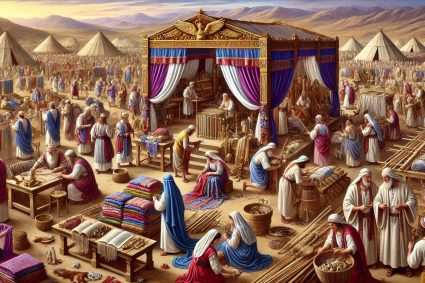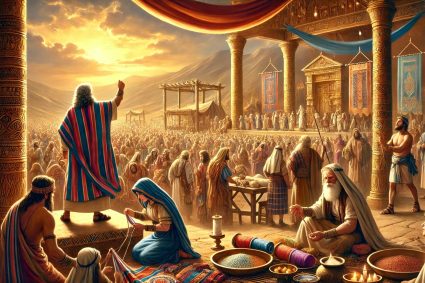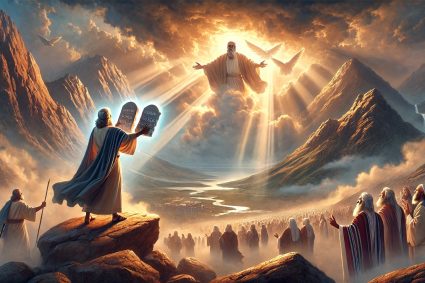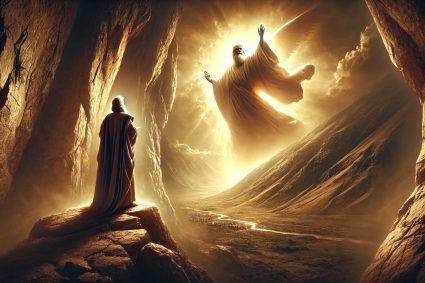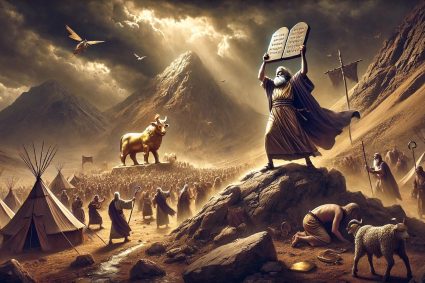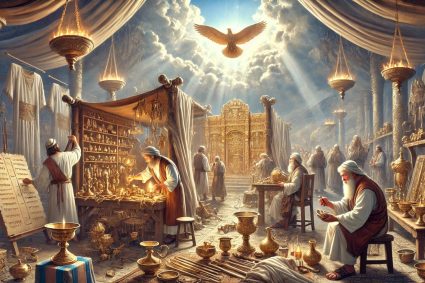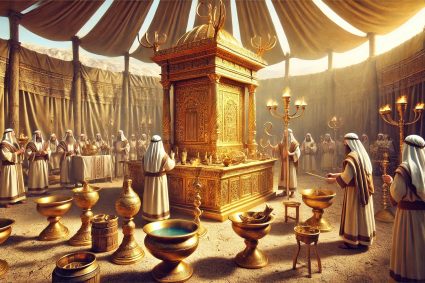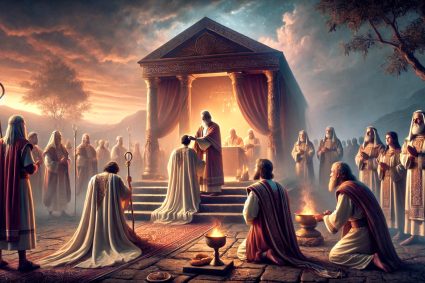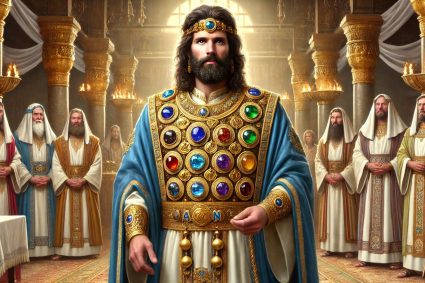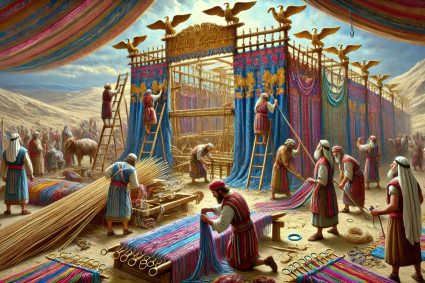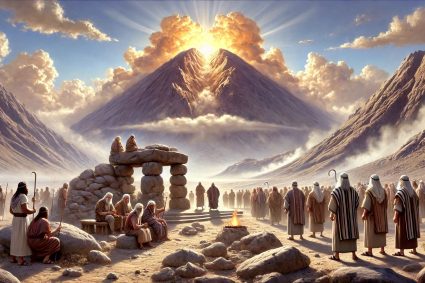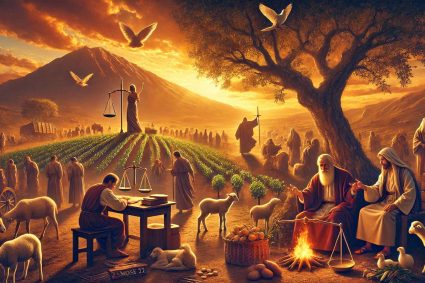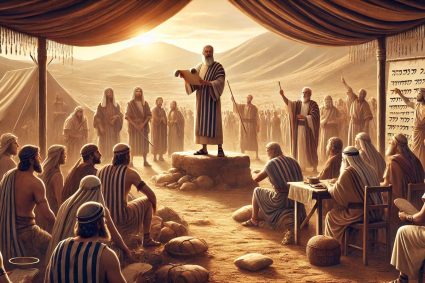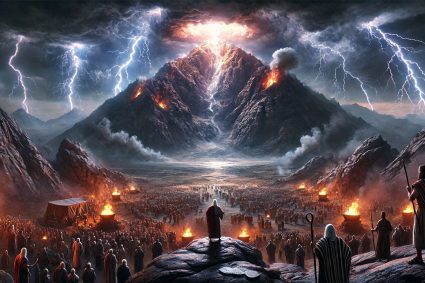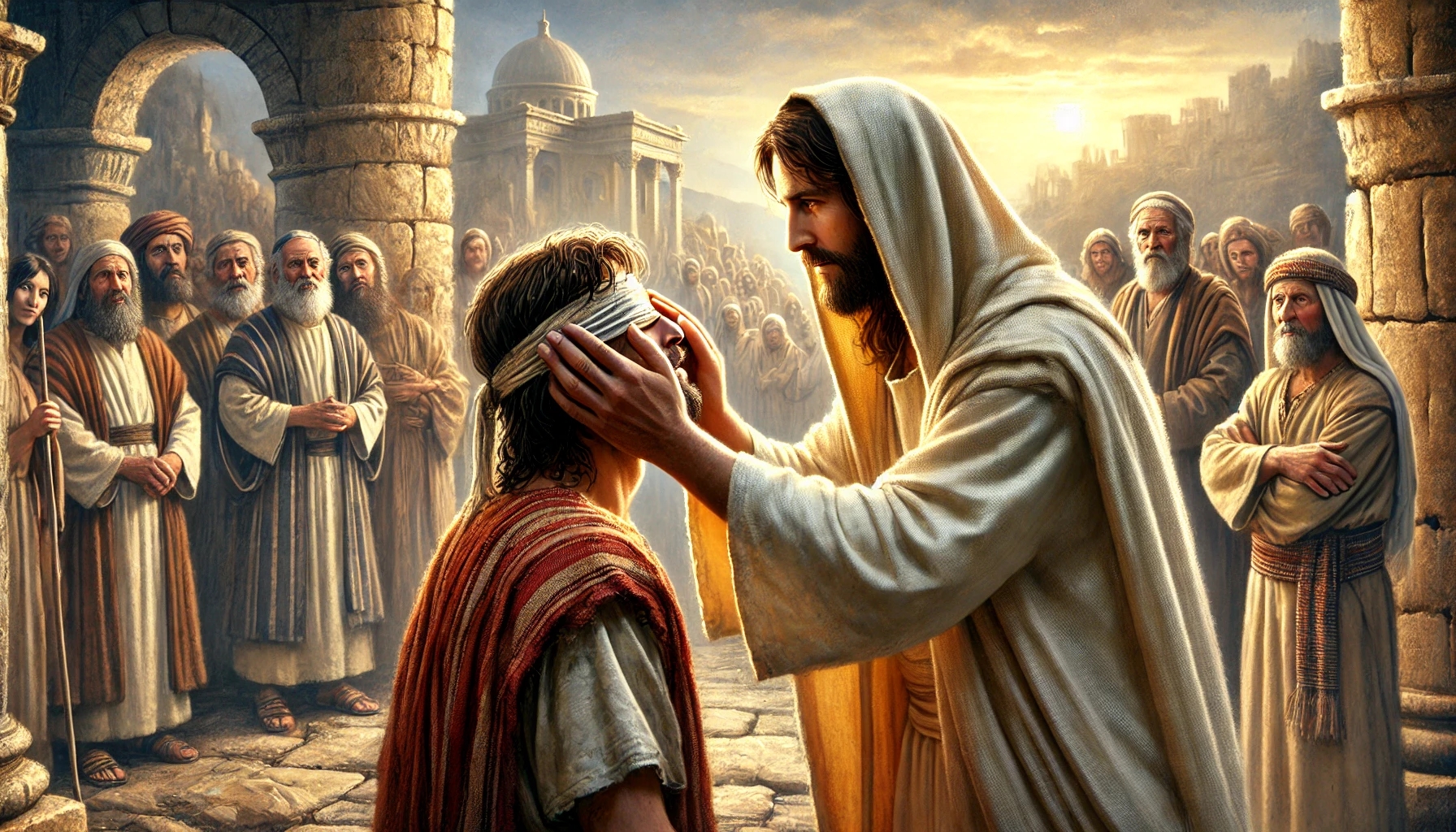
October 15, 2024
DAILY BIBLE READING – John Chapter 9
1 And as Jesus passed by, he saw a man which was blind from his birth.
2 And his disciples asked him, saying, Master, who did sin, this man, or his parents, that he was born blind?
3 Jesus answered, Neither hath this man sinned, nor his parents: but that the works of God should be made manifest in him.
4 I must work the works of him that sent me, while it is day: the night cometh, when no man can work.
5 As long as I am in the world, I am the light of the world.
6 When he had thus spoken, he spat on the ground, and made clay of the spittle, and he anointed the eyes of the blind man with the clay,
7 And said unto him, Go, wash in the pool of Siloam, (which is by interpretation, Sent.) He went his way therefore, and washed, and came seeing.
8 The neighbours therefore, and they which before had seen him that he was blind, said, Is not this he that sat and begged?
9 Some said, This is he: others said, He is like him: but he said, I am he.
10 Therefore said they unto him, How were thine eyes opened?
11 He answered and said, A man that is called Jesus made clay, and anointed mine eyes, and said unto me, Go to the pool of Siloam, and wash: and I went and washed, and I received sight.
12 Then said they unto him, Where is he? He said, I know not.
13 They brought to the Pharisees him that aforetime was blind.
14 And it was the sabbath day when Jesus made the clay, and opened his eyes.
15 Then again the Pharisees also asked him how he had received his sight. He said unto them, He put clay upon mine eyes, and I washed, and do see.
16 Therefore said some of the Pharisees, This man is not of God, because he keepeth not the sabbath day. Others said, How can a man that is a sinner do such miracles? And there was a division among them.
17 They say unto the blind man again, What sayest thou of him, that he hath opened thine eyes? He said, He is a prophet.
18 But the Jews did not believe concerning him, that he had been blind, and received his sight, until they called the parents of him that had received his sight.
19 And they asked them, saying, Is this your son, who ye say was born blind? how then doth he now see?
20 His parents answered them and said, We know that this is our son, and that he was born blind:
21 But by what means he now seeth, we know not; or who hath opened his eyes, we know not: he is of age; ask him: he shall speak for himself.
22 These words spake his parents, because they feared the Jews: for the Jews had agreed already, that if any man did confess that he was Christ, he should be put out of the synagogue.
23 Therefore said his parents, He is of age; ask him.
24 Then again called they the man that was blind, and said unto him, Give God the praise: we know that this man is a sinner.
25 He answered and said, Whether he be a sinner or no, I know not: one thing I know, that, whereas I was blind, now I see.
26 Then said they to him again, What did he to thee? how opened he thine eyes?
27 He answered them, I have told you already, and ye did not hear: wherefore would ye hear it again? will ye also be his disciples?
28 Then they reviled him, and said, Thou art his disciple; but we are Moses’ disciples.
29 We know that God spake unto Moses: as for this fellow, we know not from whence he is.
30 The man answered and said unto them, Why herein is a marvellous thing, that ye know not from whence he is, and yet he hath opened mine eyes.
31 Now we know that God heareth not sinners: but if any man be a worshipper of God, and doeth his will, him he heareth.
32 Since the world began was it not heard that any man opened the eyes of one that was born blind.
33 If this man were not of God, he could do nothing.
34 They answered and said unto him, Thou wast altogether born in sins, and dost thou teach us? And they cast him out.
35 Jesus heard that they had cast him out; and when he had found him, he said unto him, Dost thou believe on the Son of God?
36 He answered and said, Who is he, Lord, that I might believe on him?
37 And Jesus said unto him, Thou hast both seen him, and it is he that talketh with thee.
38 And he said, Lord, I believe. And he worshipped him.
39 And Jesus said, For judgment I am come into this world, that they which see not might see; and that they which see might be made blind.
40 And some of the Pharisees which were with him heard these words, and said unto him, Are we blind also?
41 Jesus said unto them, If ye were blind, ye should have no sin: but now ye say, We see; therefore your sin remaineth.
King James Version. Public Domain
Commentary
Introduction
John Chapter 9 tells the story of a man who was born blind and is healed by Jesus. This healing, which takes place on the Sabbath, sparks a heated discussion between Jesus, the Pharisees, and the healed man. The chapter highlights themes such as faith, spiritual blindness, and Jesus’ work as the light of the world.
Commentary
Healing of the Man Born Blind (John 9:1-7)
As Jesus passes by a man who was born blind, His disciples ask whether the blindness was a punishment for the man’s sins or his parents’ sins. Jesus rejects this notion and explains that the blindness serves to reveal the works of God. He emphasizes that He is the “Light of the World” and takes the opportunity to heal the man using an unusual method: He makes a paste of saliva and dirt, applies it to the man’s eyes, and instructs him to wash in the Pool of Siloam. As a result, the man regains his sight.
Reaction of the Pharisees (John 9:8-34)
The healing on the Sabbath leads to controversy, especially among the Pharisees. While some Pharisees view Jesus’ work as sinful because it occurred on the Sabbath, others recognize the miraculous power behind the healing. The healed man repeatedly testifies that Jesus healed him and is interrogated by the religious leaders. His parents, fearing the Pharisees, only confirm that he was blind to avoid punishment.
The Pharisees attempt to portray Jesus as a sinner, but the healed man boldly contradicts them, stating that only someone sent by God could perform such a miracle. These statements ultimately lead to the man being expelled from the synagogue.
Faith and Spiritual Blindness (John 9:35-41)
Jesus finds the expelled man and reveals Himself as the “Son of God.” The man believes in Jesus and worships Him. Jesus explains that He has come to “judge” so that those who are blind will see, and those who think they see will remain in their spiritual blindness. This statement is a clear reference to the Pharisees, who, in their self-righteousness, refuse to acknowledge Jesus as the Messiah.
Summary
John Chapter 9 illustrates the healing of a man who was blind from birth and addresses the spiritual blindness of those who refuse to believe in Jesus. While the healed man gradually comes to faith in Jesus, the Pharisees reject His divine authority despite the obvious miracles. Jesus makes it clear that true spiritual blindness lies not in the physical inability to see but in the refusal to recognize God’s truth.
![]()

WEEKLY SPIRIT OF PROPHECY READING – Ellen White | The Desire of Ages
Chapter 70—In the Outer Court
This chapter is based on John 12:20-42.
Read online here
Commentary
Introduction
Chapter 70 deals with the Parable of the Great Judgment, in which Jesus describes how He will separate people into two groups at His second coming: the “sheep” on the right and the “goats” on the left. Each person’s eternal destiny is not judged based on the size or significance of their actions, but rather on the mercy they have shown toward the “least brothers”—the needy. It is about practical love that serves Christ Himself in the service of fellow human beings.
Commentary
This parable illustrates a central message of Jesus: that the true signs of faith lie in practical mercy and care for those in need. Jesus makes it clear that people will be judged by their actions toward the weakest and most needy. He identifies Himself with the hungry, thirsty, strangers, sick, and imprisoned, explaining that every act of kindness given to these individuals is considered a service to Himself.
It becomes evident that theological knowledge or status is not the primary focus, but rather the heart of service and humanity. Those who act spontaneously and lovingly will be rewarded, while those who live selfishly and ignore the plight of others will be condemned. The surprising reaction of the righteous, who did not even know that they were serving Jesus, demonstrates that genuine neighborly love comes from the heart and does not seek recognition.
The parable also serves as a challenge to those who live in prosperity. Jesus points out that wealth brings responsibility and that God expects the rich to care for the needy. Yet all too often, the wealthy remain selfish and isolate themselves from the suffering of the poor.
Summary
Chapter 70, based on Matthew 25:31-46, shows that people’s eternal fate depends on their practical love and mercy toward the needy. Jesus identifies Himself with the weakest and explains that every service to them is a service to Himself. This parable calls Christians to live out Christ’s love in their daily lives by helping the needy and demonstrating true discipleship through their mercy. Love for one’s neighbor is presented here as the most important sign of a living faith.

WEEKLY SPIRIT OF PROPHECY READING – Ellen White | The Desire of Ages
Chapter 71—A Servant of Servants
This chapter is based on Luke 22:7-18, 24; John 13:1-17.
Read online here
Commentary
Introduction
Chapter 71 describes the last evening of Jesus with His disciples before His death. During the final Passover meal, Jesus reveals to His disciples through a humble act what true greatness in serving others entails. The chapter focuses on the foot washing as an example of humility and selfless service that Jesus has left to His followers. The scene unfolds in an atmosphere of sorrow, as Jesus is aware of His impending sacrifice.
Commentary
The Last Supper and the Foot Washing (Chapter 71)
In the upper room of a house in Jerusalem, Jesus prepared to celebrate the Passover with His disciples. He knew that His time had come and that He would be the true sacrificial lamb. On this pivotal night, He wanted to teach His disciples what true greatness and discipleship mean. While the disciples continued to argue about their own positions and superiority, Jesus decided to provide them with a powerful example of humility and love. Instead of preaching about their faults, He washed their feet, a task typically reserved for a servant. This act demonstrated that true leadership and greatness lie not in being served but in serving others.
The foot washing became a symbol of the cleansing of the heart. Although the disciples were physically cleansed, they still needed spiritual purification from pride, jealousy, and discord. Peter, who was initially horrified when Jesus attempted to wash his feet, later understood the deeper meaning of this act: it was about the inner cleansing that only Jesus can provide.
Jesus used this moment to make it clear to the disciples that true discipleship involves serving others, just as He did. Through His service, He set an example for them to follow: “I have set you an example that you should do as I have done for you” (John 13:15). Jesus taught that humility, love, and selflessness are the keys to true fellowship and discipleship.
Summary
Chapter 71 deals with the last evening of Jesus with His disciples, during which He provides them with a lasting example of humility and service through the foot washing. Jesus demonstrates that true greatness does not lie in power or position but in selfless service to others. This lesson, conveyed through His act of foot washing, becomes a fundamental teaching of Christian life: “By love, serve one another.” Jesus’ example encourages us to open our hearts to His cleansing grace and to serve our fellow human beings with love and humility.
(Visited 11 times, 1 visits today)




